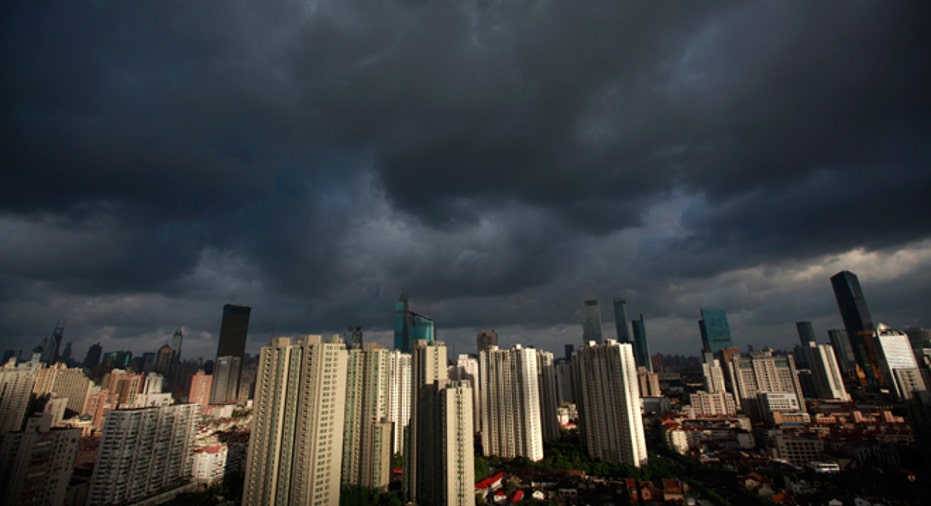G-20 Seeks Reassurances that China Plans to Calm Markets

Global finance leaders meeting in Turkey this week are seeking details from Chinese officials on how Beijing plans to calm turbulent markets and prevent a collapse in the world's second-largest economy. China's market routs and a slew of weak data are fueling concerns among the Group of 20 biggest economies that a stalled Chinese economy could spur further global sell-offs and push world growth deeper into a long-term rut. China's turmoil, a souring global growth outlook and the prospect of higher borrowing costs as the U.S. Federal Reserve prepares to raise interest rates for the first time in nearly a decade slammed emerging markets again Friday. The Russian ruble sank by as much as 2.3% against the dollar, the South African rand shed 0.5% and Turkey's lira slumped back toward all-time lows against the greenback. Friday's sell-off comes despite signals from the European Central Bank on Thursday that it may embark on additional monetary easing to stimulate the eurozone economy, which is grappling with stagnant growth and inflation near zero. The persistent pressure on markets led by developing nations highlights concerns about China's ability to counter a slump in financial markets stoking economic risks. "Viable alternatives—not rhetoric—should be presented," South Korean Finance Minister Choi Kyung-hwan said in an interview ahead of a meeting of G-20 finance ministers and central bankers Friday and Saturday. The International Monetary Fund this week said it is planning to downgrade its global growth outlook for the year—already at its slowest rate since the financial crisis—in part because China's slowdown was weighing on global output more than previously expected. That's why ECB chief Mario Draghi said China would dominate talks among officials. "We do expect to have much more visibility than we do today." Beijing's handling of its market crises have fueled questions about whether it has complete control over its economy, and if the Communist government would put the brakes on a promised overhaul of its economy. That uncertainty has fomented market turmoil as investors fear growth could be far lower than the Beijing's official 7% rate. "There are questions being raised about Chinese policy-making over the last several months," said Ted Truman, a senior fellow at the Peterson Institute for International Affairs and former top financial diplomat at the U.S. Treasury. "They look less like a smooth-oiled machine and more like they are making it up as they go along. That has unnerved some people." Beijing has promised to shift its economy away from a credit-fueled, export-driven investment strategy to one more reliant on household consumption. A key plank in that effort is allowing markets to play a much stronger role in the carefully managed economy. But U.S. and other G-20 officials are concerned that China's recent market routs could undermine political support for that economic transition, slowing the pace of overhauls, which could in turn lower the country's long-term growth prospects. "The question is, are they managing that transition in an effective and orderly way," U.S. Treasury Secretary Jacob Lew told CNBC Wednesday. Besides China's slowdown, the IMF said a host of other downside risks threaten to push the global economy into much deeper trouble without concerted action by the largest economies. "Risks are tilted to the downside, and a simultaneous realization of some of these risks would imply a much weaker outlook," the IMF said in a report on the state of the global economy for the G-20. "Strong mutual policy action is needed to raise growth and mitigate risks." With growth slowing in many corners of the world and the U.S. economy strengthening, investors have plowed back into the U.S., pushing the value of the dollar up against most major currencies. That is a problem for many countries and corporations that have borrowed heavily in dollars but whose income is denominated in local currencies. Combined with the Fed's plan to raise rates in the near future, those weakening growth prospects and heavy debt loads are a toxic mix for many companies and economies, especially in industrializing nations. "At this stage global markets, China and emerging markets, likely need a much more coordinated global—G-20—-response," said Tim Ash, an economist at Nomura in London. "Not sure we are close to that." The fund's prescription for the global economy hasn't changed much over the past several years, but politics have hindered G-20 efforts to bolster global growth. The IMF has urged both emerging and developed nations to overhaul their economies to make them more competitive. It has long cautioned developing nations to get their fiscal houses in order. The IMF has backed more central bank easing—including asking the Fed to delay its rate rise until 2016—to spur growth and avoid curbing global output. And the fund has pushed for more infrastructure investment as a way to boost global demand. While central banks have eased, other policy makers have struggled to push through deep, meaningful economic overhauls. Now that borrowing costs are rising and growth in many of the world's largest emerging markets slowing, prospects for many economies are dimming even further. If China's growth falls off a cliff, it would send shock waves across the globe. The country's slowdown has already been a prime factor in the fall in commodity prices and slumping growth in some of the largest industrializing nations from China to Latin America. The World Bank estimates that a 1 percentage-point decline in China's growth shaves a half percentage-point off global growth. That means if forecasters such as Lombard Street Research, whose projection for the year is more than 3 percentage points below Beijing's official rate of 7%, are right, a Chinese nosedive would ax 1.5 percentage points off global growth. With the IMF estimating global growth of 3.5% this year, the world economy can ill afford such a decline.



















